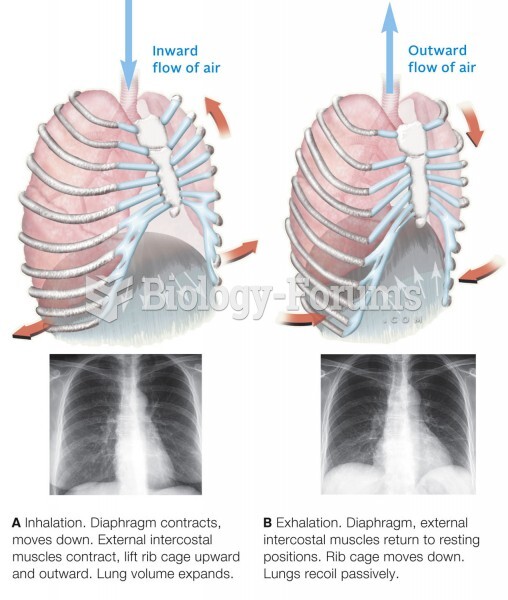Answer to Question 1
Correct Answer: 4
Rationale 1: Codeine is a narcotic, and even low-dose preparations have the potential for respiratory depression, particularly if attention is not directed toward proper dosing.
Rationale 2: Codeine is a narcotic, and even low-dose preparations like Ambenyl have the potential for respiratory depression, particularly if attention is not directed toward proper dosing.
Rationale 3: Hycodan (with the narcotic hydrocodone) has a greater potential for respiratory depression than another cough suppressant.
Rationale 4: Delsym (dextromethorphan) is a nonnarcotic preparation with the lowest potential for respiratory depression.
Global Rationale: There are almost no adverse effects at therapeutic doses of dextromethorphan. Sedation and dizziness have occurred at moderate doses. In abuse situations the drug can cause CNS toxicity with a wide variety of symptoms, including slurred speech, ataxia, hyperexcitability, stupor, respiratory depression, seizures, coma, and toxic psychosis. The remaining products are all narcotic-based with risk for respiratory depression.
Answer to Question 2
Correct Answer: 1
Rationale 1: Phenylephrine is a decongestant topical preparation that decreases puffiness of the mucous membranes inside the nose. Subjectively, the client will experience less stuffiness.
Rationale 2: Energy levels will improve as the cold subsides; there is no medication that assists with that symptom.
Rationale 3: The client will still have posterior pharyngeal irritation with coughing.
Rationale 4: An antihistamine decreases the quantity of secretions.
Global Rationale: Sympathomimetics (also called adrenergic agonists) with alpha-adrenergic activity are effective at relieving the nasal congestion associated with the common cold and allergic rhinitis when given by either the PO or intranasal route. The intranasal preparations such as oxymetazoline (Afrin, Others) are available OTC as sprays or drops and produce a noticeable response within minutes. Energy levels will improve as the cold subsides; there is no medication that assists with that symptom. The client will still have posterior pharyngeal irritation with coughing. An antihistamine decreases the quantity of secretions.







